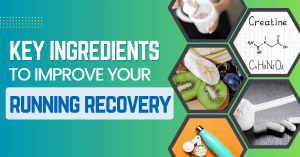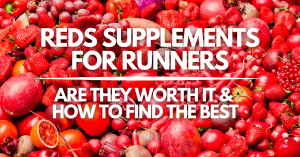Wouldn’t it be nice if there was an all-natural supplement you could take for a guaranteed boost in performance with no harmful side effects?
That’s the claim made for beetroot juice, a vegetable juice that has awkwardly settled somewhere in between “food” and “dietary supplement.”
Beetroot juice comes from the humble beet (as it’s known here in North America), a vegetable formerly known for being served steamed or pickled as a healthy side dish.
But if you extract the juice from a beet, you get a liquid that is quite rich in nitrate, a chemical that the body metabolizes into nitric oxide, which has a potent effect on a number of biological processes, including lowering your blood pressure.
Some research shows that beetroot juice also appears to improve performance in endurance exercise, though the mechanism is not fully understood.
So, is beetroot juice really a wonder supplement?
As always, we’ll turn to the scientific research to find out.
Studies and research on beetroot juice
Initial research showed some promising findings:
A 2010 study by Katherine Lansley and other researchers at the University of Exeter in the UK tested the oxygen consumption during walking and running in nine healthy men after consuming 17 fluid ounces of beetroot juice for six days, then compared the results to another six-day trial when the men drank a placebo.
- Lansley et al. found that the six-day beetroot juice protocol caused the subjects to consume less oxygen while walking and running at a range of speeds, implying they became more efficient. Further, they lasted 15% longer on a treadmill run to exhaustion.
- Another study, this one published in 2012 by Naomi Cermak, Martin Gibala, and Luc van Loon, found that a similar six-day stretch of beetroot juice consumption in trained cyclists improved performance and power output by about 1% each over the course of a 10km cycling time trial.
- And a group of researchers at St. Louis University found that eating seven ounces of baked whole beets led to 11 recreational runners finishing a 5km time trial faster.
However, not all research has found a positive effect from beetroot juice.
- Two studies on well-trained cyclists found that beetroot juice consumption had no effect on a 50-mile cycling time trial or a one-hour time trial, and a third also found no benefit in well-trained kayakers.
Even though oxygen consumption was lower in the kayakers who consumed beetroot juice, their peak power output and time trial performances were not superior to when they consumed tomato juice as a placebo.
- Finally, a Master’s thesis by Robert Kyle Boorsma found no effect of either acute consumption (one dose) or chronic consumption (daily for eight days) of beetroot juice on 1500m performance in a group of ten elite middle distance runners with PRs of about 3:56—equal to around 4:15 for the mile.
Well-trained versus beginner runners
One thing all of these negative trials have in common is that they were conducted on well-trained athletes.
Most of the studies on beetroot juice that did find a positive effect were conducted in physically active normal people or recreational athletes.
Because the mechanism by which beetroot juice may improve performance is uncertain, it’s hard to pin down exactly why well-trained athletes don’t benefit.
The authors of one study speculate that fit athletes (cyclists, in their case) have already maximized whatever physiological mechanism that beetroot juice stimulates, hence the lack of effect.
Conclusion
So, as is often the case with popular supplements, beetroot juice does not quite live up to the hype.
There appears to be some benefit if you are an untrained runner, but if you’ve been putting in good training, you’re not likely to see any boost in performance.
If you want to give beetroot juice a shot anyways, here are some things to keep in mind:
- The standard protocol used in most experiments calls for drinking 17 fluid ounces of the juice around three hours before exercise. It’s important to stick to natural beetroot juice, not a supplement claiming to have the same active ingredients.
- As pointed out by three researchers at Karolinska Institutet in Sweden, nitrates—which are quite safe, especially from a natural source like a beet—are often confused or intermingled with nitrites, which have potent effects on the body and can be quite toxic.
- Finally, you should be aware that there are some side effects to consuming beetroot juice. The dark-red color of the juice often makes its way into your urine, changing it to a pinkish hue. Though harmless, it’s a bit unsettling if you haven’t seen it before. Second, if you have a history of kidney stones or are at risk for them, you should avoid beets and beetroot juice, as they are high in oxalates, a chemical which can crystallize in the kidneys.
At the end of the day, there are still no secrets to success.
Beetroot juice might bump up your performance by about 1% if you’re a beginner, but more experienced runners will not see any benefits. They’ll have to improve the hard way—training!
It’s easy to fall victim to over-hyped supplements, especially when the results of studies are not fully analyzed.
If you’re interested in learning more about what supplements can help you improve your performance, I suggest you check out the Supplement Reference Guide that is published by Examine.com.
Examine.com is a completely independent (i.e. no supplement company can buy recommendations) reference guide that gathers and interprets all the research on supplements and how they might work for you.
The guide has information on over 300 supplements. All you do is search the supplement name or your goal (i.e. run faster) and the guide will tell you whether it’s worth it or not – with links to scientific papers.
This is definitely one of our go-to resources at RunnersConnect and I encourage you to check it out. Here is the link again.
In full disclosure, we recorded an in-depth interview with Kamal Patel, who has a double MBA/MPH (Master of Public Health) from Johns Hopkins University and is the director of Examine.com, about supplements specific to runners as part of our Marathon Nutrition Blueprint.








